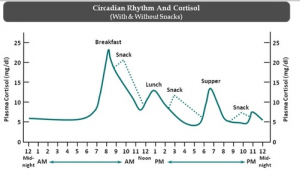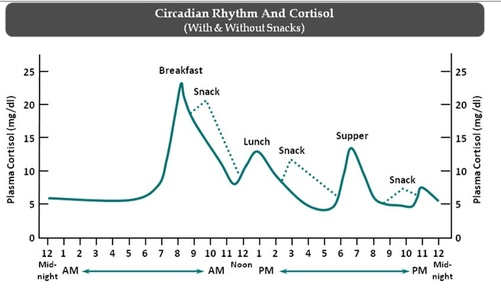
Why is it so Hard to Wake up in the Morning? Answered
We all are aware that its a little difficult to get up in the morning. Ofcourse few people make it a habit of waking up early but most of them doesn’t wake up even if they are willing to do so. The below are few reasons why its difficult to wake up early in the morning.
1) Maybe you aren’t sleeping deeply enough. When you sleep, is there any light in the room? Because I know the human eye responds to blue wavelength light and this stimulates the pineal gland to release the hormone melatonin.
Also I have heard, though I need to do more research on this honestly, that humans were more meant to sleep in 2 4hr shifts at night, as in 4 hours sleep, a couple hours awake, then 4 more hours of sleep.
2) Timing of your sleep. If you stay up late, you’ll be sleeping past when the sun rises, which would effect how deeply you sleep at the tail end of it. And as I said above, that sleep won’t be as deep. Even more, the tail end of sleep is when you hit the deepest points of REM sleep, where the most recovery happens. So if your compromising this part of your sleep, you will be doing the most damage.
Also along the lines of timing, here is the cortisol clock:

Cortisol is typically released as a stress hormone, but it has a number of functions, including mobilizing glucose for the brain and tapping into fat stores. It also affects alertness.
Typical peak is around 7am, can be as early as 5am for some people though.
If you are sleeping through this natural spike in energy, you are missing the prime time to wake up and start your day. Evolutionarily, this peak was to prime you to wake up so you could forage and hunt for food, as you typically haven’t eaten in 8 hrs if you’ve been sleeping. So when you wake up, you’re in a mini-fasted state. Waking up during this time would mean you would have reserve glucose in your bloodstream, making your brain more active. Waking up after it, you’d probably have less and thus less energy for the brain to utilize.
3) Environmental factors. Nothing about modern human life is natural. We have unnatural amounts of stimulation from light at night, we stay up later, eat different foods like caffeinated beverages, ect. Caffeine, for one, could cause you to stay up later and sleep light. Avoid it later in the day. Also take time to unwind before sleeping. This means power off the computer an hour before sleeping, turn the lights off. Your brain needs time to respond to the lack of light and produce important signaling molecules, like PGD2, anandamide, and melatonin, to ready you for sleep.
Likewise this goes back to point 2, but stress will affect your sleep. As I said, cortisol is released when you wake up to mobilize energy. Well your body also uses this hormone in stressful situations, like fight-or-flight scenarios, to give you energy and prime you for danger. You don’t want high cortisol levels before you go to bed, you need to calm down, not get amped up. So unwinding activities like light exercise (think yoga, Tai Chi, or meditation), destressing activities like reading, or simple breathing exercises to lower stress before sleeping.
Since I don’t know your individual situation though, I can’t say exactly what is plaguing you, but these are common things that I know of that affect people’s sleep. Hopefully one of these things was relevant to you, at least.